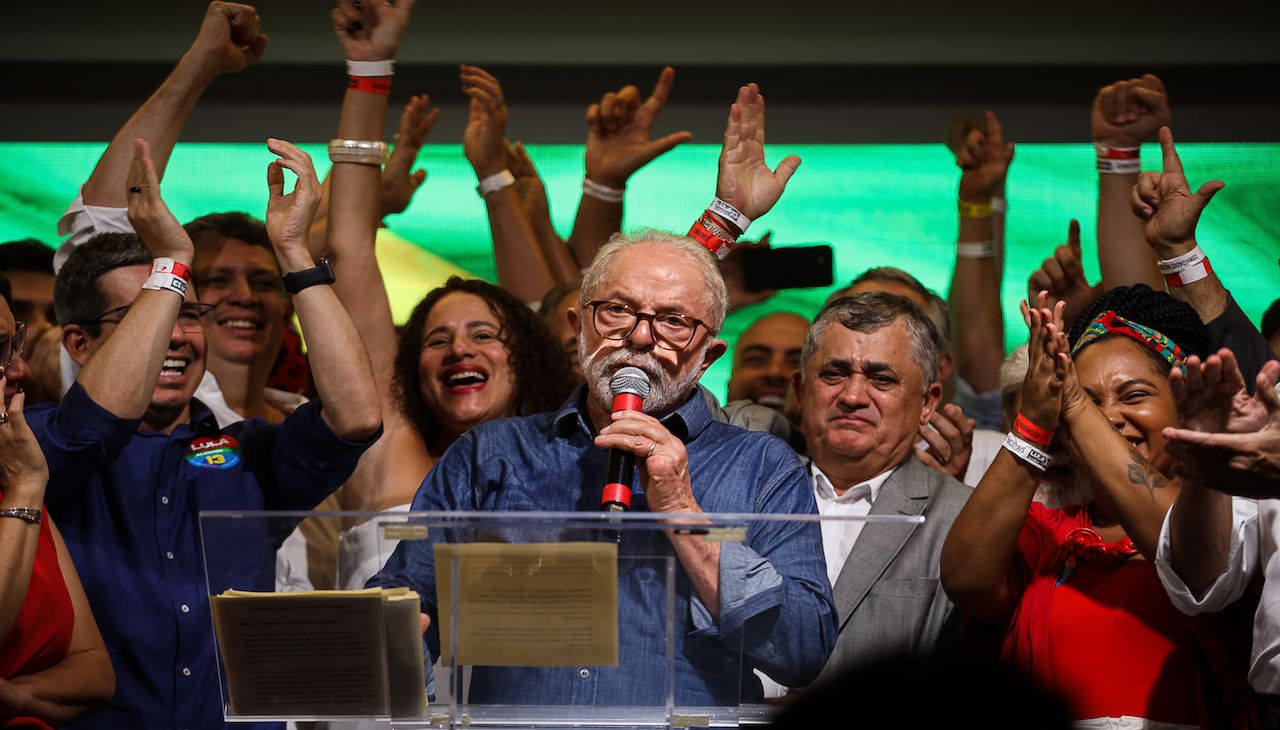
What Lula’s win means for Brazil, newly Leftist Latin America, U.S. relations, and more
Lula’s reelection is a win for climate change, the Amazon, economics, Latin America’s future, and U.S. relations.
Former two-term President and imprisoned leader, Luiz Inácio Lula da Silva won Brazil’s Presidential Election on Sunday night, Oct. 30, and ousted incumbent and right-wing leader Jair Bolsonario in one of the most divisive and inharmonious elections in the country’s recent history.
For Bolsonaro, it is the first time since 1985 a leader failed to win reelection in Brazil. The incumbent leader has not conceded the loss since Sunday night's results were revealed in which Lula won 50.9% of the vote to Bolsonaro’s 49.1% with over 2 million votes separating the two.
With the win, Lula joins a growing group of leftist Presidents and leaders in Latin America in a movement kickstarted by the election of Mexican President Andrés Manuel López Obrador back in 2018. Others include Colombia's Gustavo Petro, Chile’s Gabriel Boric, Peru’s Pedro Castillo, and Argentina’s Alberto Fernández.
Lula’s third term brings the Brazilian people hopes of revived democracy and the savior of so much that has gone awry in the fifth-biggest country in the world, and Latin America’s biggest economy in terms of GDP. Optimists, and supporters feel his presidency will fix the torn and broken economy that has not completely recovered from the recession of 2014 that also coincided with the impeachment of then-President Dilma Rousseff.
The destruction the COVID-19 pandemic had economically and health wise on its people did not help the situation. It was a divisive and dark time under Bolsonaro’s watch. The country suffered vastly during the pandemic that left over 700,000 dead as a result. Bolsonaro attacked the left, the media and Brazil’s democratic institutions. His undermining of the electoral system brought backlash worldwide and made him an international figure for the right wing.
Also under Bolsonaro, deforestation in the Amazon forest soared to a 15-year high with the National Institute of Space Research, showing that the rainforest had lost over 5,100 square miles of tree cover from August 2020 to July 2021 and satellite data indicated that deforestation increased by about 22% in the same timeframe.
Economically, over 9.6 million people fell below the poverty line between 2019 and 2021, and literacy and school attendance rates also fell. Brazil ranked seventh in GDP between 2010 and 2014. By 2020, they were in 12th place and dropped to 13th in 2021. Lula will be inheriting a ravished climate agenda, and a politically divisive, and economically torn Brazil.
Latin America Relations
As five of the largest countries in Latina America elected leftist leaders during Bolsonaro’s time in office, he bashed many of them in the public eye and soured relations with Brazil’s neighboring countries as a result.
Bolsonaro attacked Argentina and condemned their left-wing government for misgovernance of its economy, insulted Chile’s Boric and even urged voters during this recent Presidential campaign to not vote for Lula to stop Brazil from “turning into Venezuela.”
Much like Russia has done with their War in Ukraine, Bolsonaro isolated Brazil from everyone else. According to Hussein Kalout, an international relations researcher at Harvard University who has attended a recent string of Lula’s meetings with foreign officials, told the New York Times, “Brazil is totally adrift and isolated in its own region, and this is not good,” he said.
With Lula’s reelection, he hopes to improve relations with those neighboring countries not only politically, but also based around climate change. This will not be difficult considering all of the leftist leaders in Latin America were outwardly vocal about the support for Lula.
U.S. Relations
RELATED CONTENT
President Joe Biden was one of the first to congratulate Lula following the release of the results on Sunday night as U.S. and Brazil relations are also expected to improve after a storied relationship between the two powerhouses goes back almost two centuries. The White House congratulating Lula was a crucial first step in reviving their relationship.
Brazil’s main imports from the U.S. are aircraft, machinery, petroleum products, and medical instruments. The U.S is also Brazil’s second-largest export market. Brazil’s primary export products to the U.S. are crude oil, iron and steel, and machinery.
The U.S. Bureau of Economic Analysis revealed a $67.5 billion of U.S. direct investment in Brazil as of 2021 and the Brazil Central Bank measured the total at $123.9 billion as of 2020.
Lula has vocally expressed in recent months that he sees the U.S. and Europe as huge partners for Brazil in regards in part to trade and environmental partnership.
Brazil’s Revamp
Under Lula, Brazil is expected to go under a complete drastic remodel as it goes back to the left.
Over the course of the campaign cycle, Lula’s expressed plans include expanding services for the poor, such as more social welfare payments, raising the minimum wage and creating programs to feed and house more people as global inflation has taken its toll.
Brazil's current dire economic situation had not been seen even since Lula’s first time back in office, in which he served two terms from 2003-2010. Lula said funding would come from raising taxes on the wealthy, and increasing government spending. What he will be able to actually implement and accomplish is still vague as he faces an uphill battle with all of his policy plans.
The right-wing party still currently holds the most seats in Brazil’s Congress while a dominant centrist group has control of both the House and Senate. Lula’s handpicked successor as president, Dilma Rousseff, led Brazil into a great recession back in 2014 from which it has still not fully recovered that then coincided with the economic consequences from the COVID-19 pandemic.
What is to come for Brazil’s future will be officially found out when Lula is inaugurated on New Years, Jan. 1.




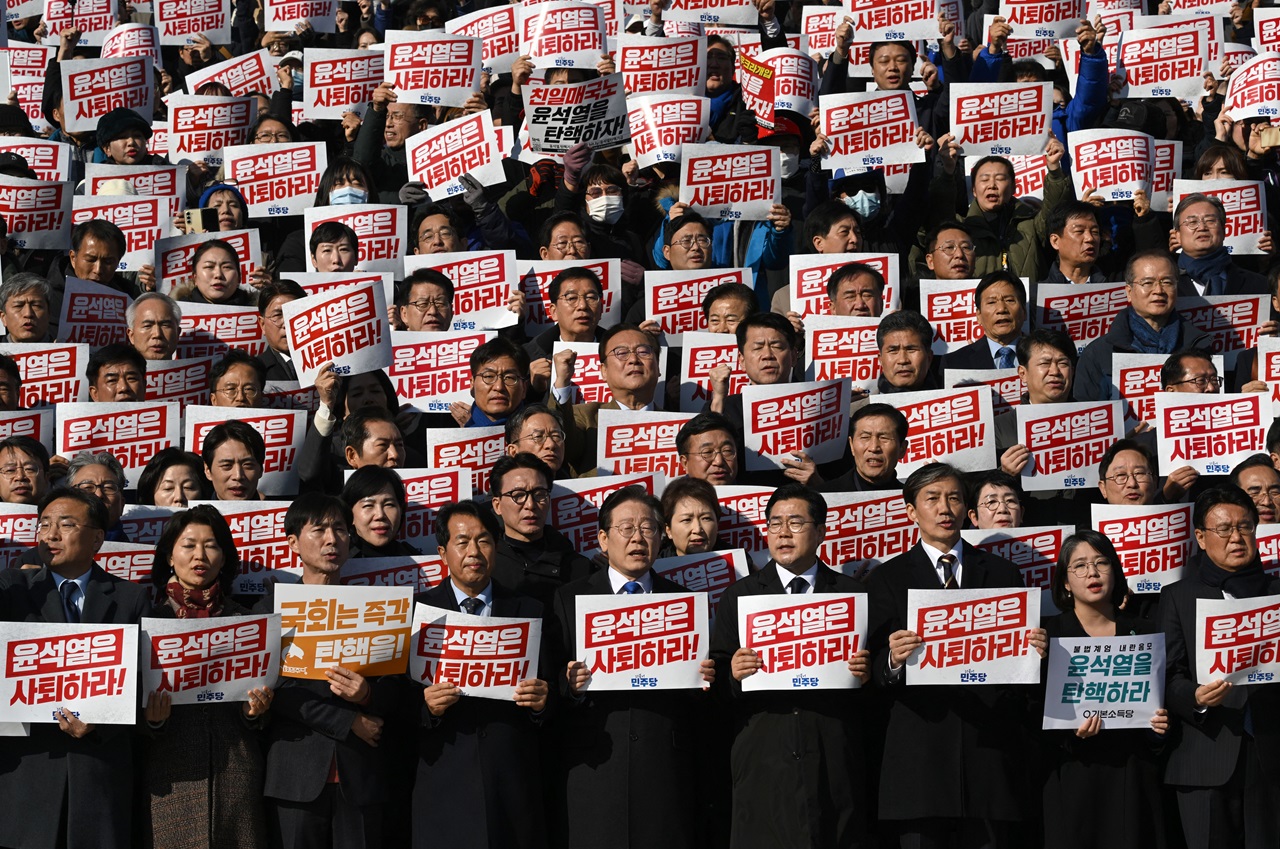
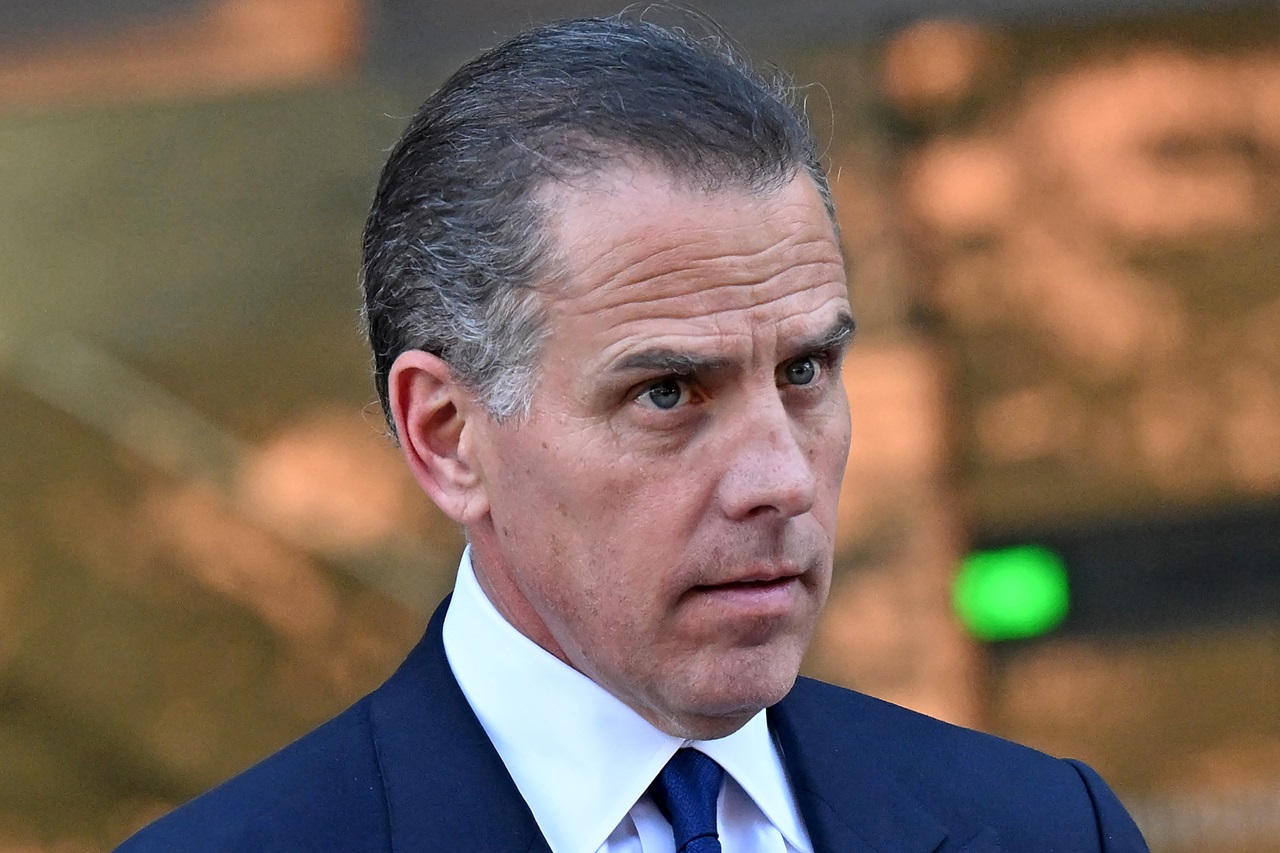
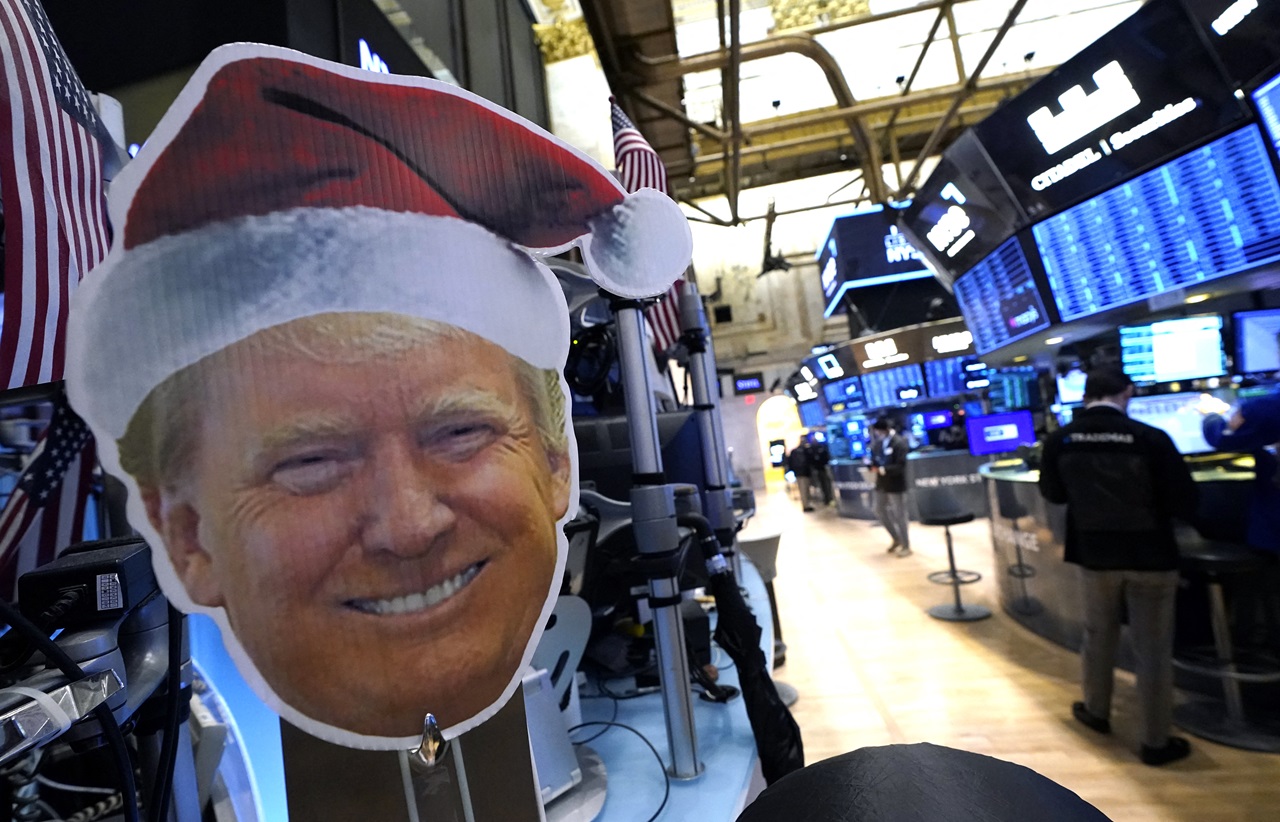
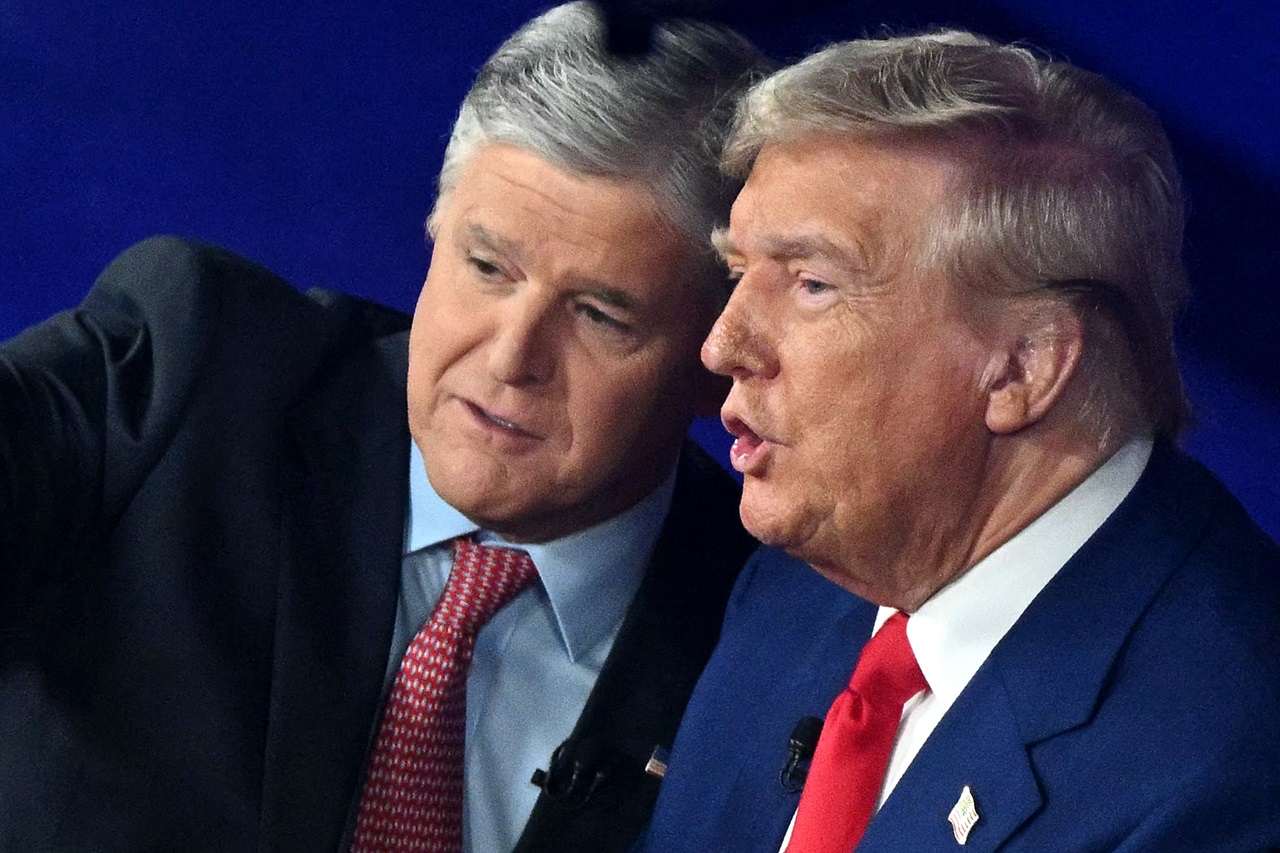



LEAVE A COMMENT:
Join the discussion! Leave a comment.